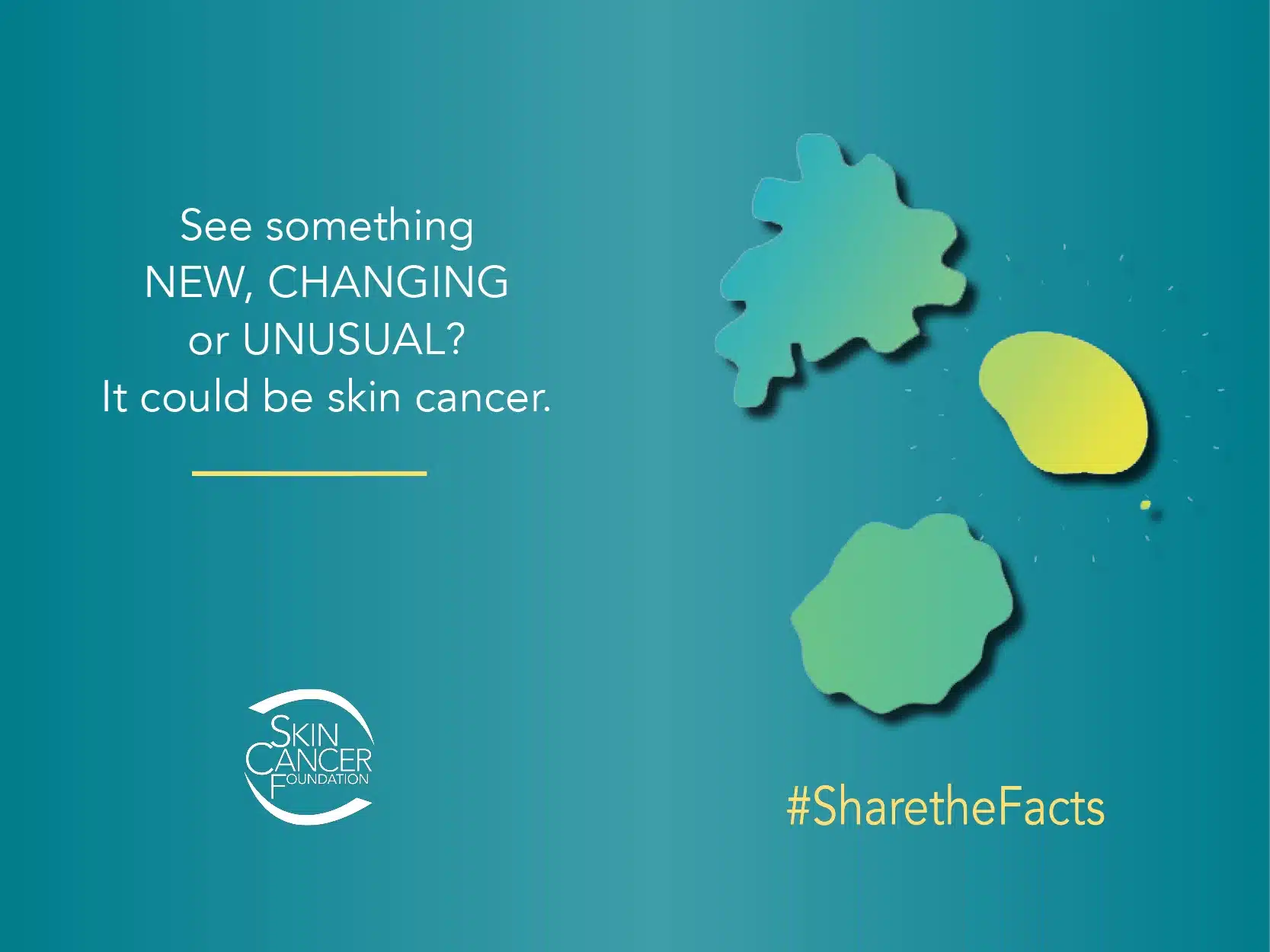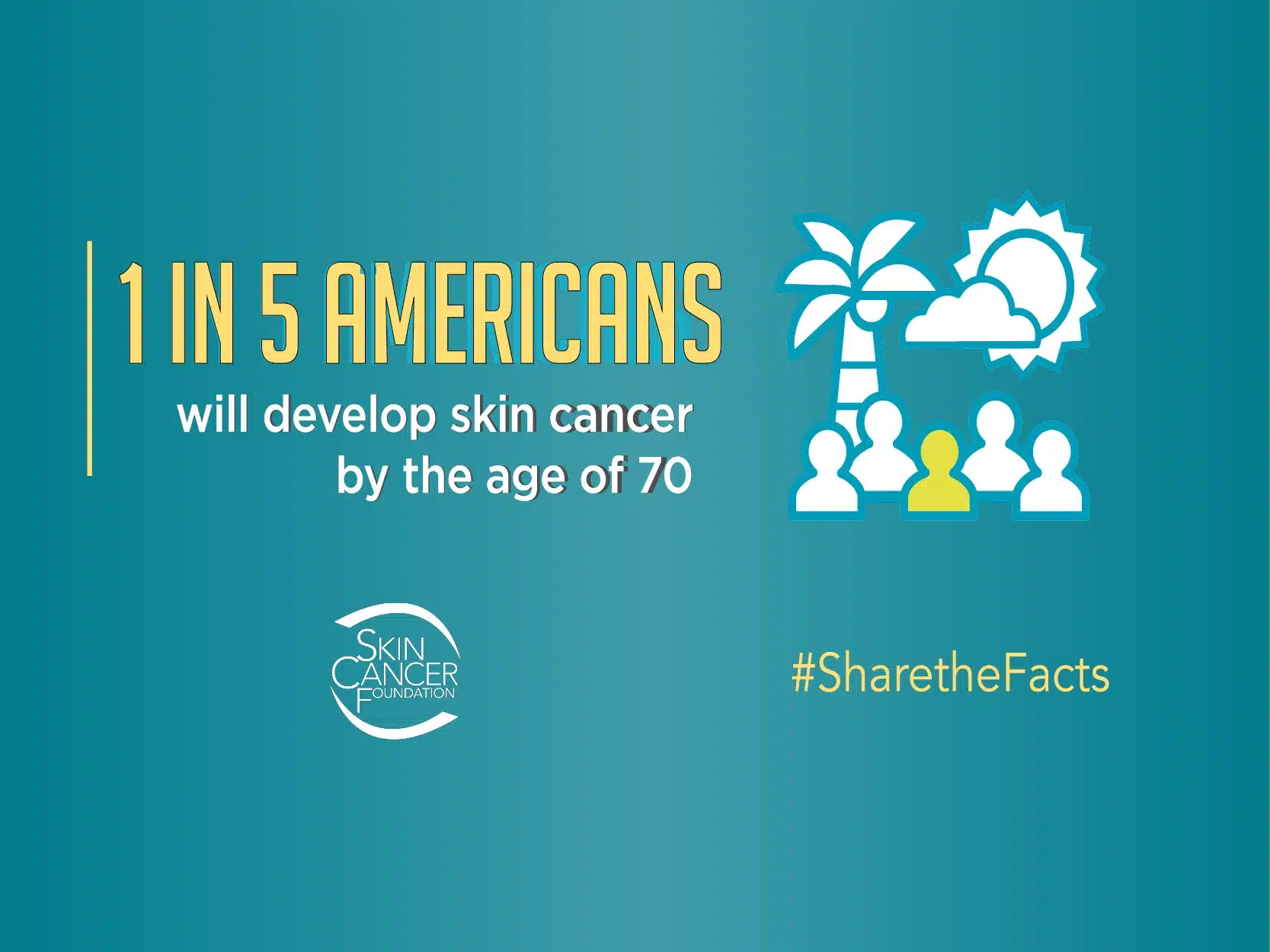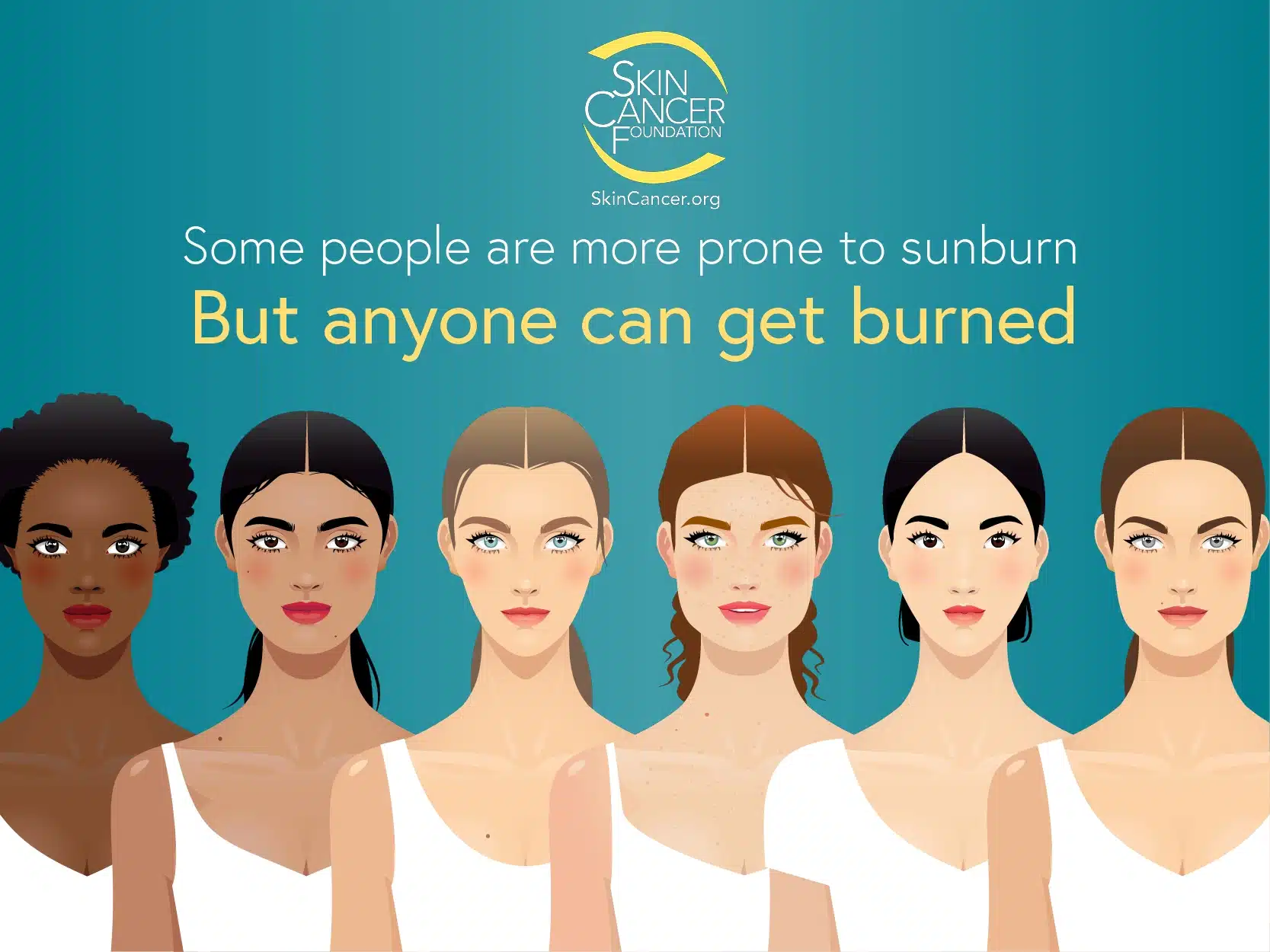Donate
Help Support the Cause
The skin cancer foundation is a 501 non-profit organization dedicated to the prevention, education, and early detection of skin cancer.
Your donation will help support the skin cancer association's mission to save lives by providing free skin cancer screenings and educational resources to communities across the country. Every dollar makes a difference!
Your donation is 100% tax deductible. A full 94% of the resources support the lifesaving programs.
Facts you need to know about skin cancer
Every day, over 9,500 people in the U.S. are diagnosed with skin cancer, and every hour, more than two people die from it.
In 2012, the most recent year for which statistics are available, more than 3.3 million people in the U.S. were treated for nonmelanoma skin cancer.
Each year, more Americans are diagnosed with skin cancer than all other cancers combined.
According to research, 70.3% of Americans will develop skin cancer by the age of 70.
The most prevalent precancer is actinic keratosis, which affects more than 58 million Americans.
In the United States, it is estimated that treating skin cancers costs $8.1 billion annually: $4.8 billion for nonmelanoma skin cancers and $3.3 billion for melanoma.
Prevention
By utilizing a combination of methods, you can best protect yourself from the harmful effects of UV radiation and prevent skin cancer.
The UV radiation from the sun is not only dangerous, but it's also tricky. It can cause premature aging and skin cancer, and it can reach you even when you're trying to avoid it by penetrating clouds and glass or bouncing off of snow, water, and sand.
What’s more, sun damage accumulates over the years, from prolonged outdoor exposure to simple activities like walking the dog, going from your car to the store, and bringing in the mail.
The Skin Cancer Foundation recommends that you:
- Seek the shade, especially between 10 AM and 4 PM.
- Don’t get sunburned.
- Avoid tanning, and never use UV tanning beds.
- Cover up with clothing, including a broad-brimmed hat and UV-blocking sunglasses.
- Use a broad-spectrum (UVA/UVB) sunscreen with an SPF of 15 or higher every day. For extended outdoor activity, use a water-resistant, broad-spectrum (UVA/UVB) sunscreen with an SPF of 30 or higher.
- Apply 1 ounce (2 tablespoons) of sunscreen to your entire body 30 minutes before going outside. Reapply every two hours or after swimming or excessive sweating.
- Keep newborns out of the sun. Use sunscreen on babies over the age of six months.
- Examine your skin head-to-toe every month.
- See a dermatologist at least once a year for a professional skin exam.
Detection
While it is still possible to develop skin cancer without any warning signs, most cases will display at least one symptom that can be easily detected. The following are the most common symptoms of skin cancer:

- A new mole or a change in an existing mole.
- A sore that doesn’t heal.
- A spot or growth that is new, changes shape or color or bleeds.
- A patch of skin that is redder or hyperpigmented than the surrounding skin.
- A white, scaly, or crusted area on the skin.
- Any change in sensation on the skin, such as itching, tenderness, or pain.
- The earlier you catch and treat skin cancer, the higher your chances are of beating it. And in the early stages of development, you’re the best chance to see changes.
- Self-exams are a simple technique to examine yourself with a new perspective, which may help you avoid illness. That's why we recommend that you do a skin check every month and a yearly check-up at your local dermatologist.
How to donate
If you would like to donate to support the work of finding a cure for skin cancer, please visit the donation website or contact us at donate@tattoochronic.com. Every donation helps get one step closer to a cure. Thank you for your support!


